

Jamal Khashoggi was a fierce advocate for democracy, human rights and the rule of law. He believed that respect for political and civil rights of all individuals would provide the solution to the problems of war and instability that plagued the Arab world.
As a journalist and as an adviser to members of the ruling elite, Khashoggi tried to work from within the system, advocating for democratic reforms. When working from within became no longer possible, Khashoggi continued the struggle from without.
From self-exile in the United States, Khashoggi became an outspoken critic of the anti-democratic forces of oppression. In the end, those forces of oppression could no longer abide this champion of democracy. Khashoggi was murdered for the power of his ideas, and because, even in the face of mortal danger, he refused to remain silent.

As a Saudi journalist, Jamal Khashoggi criticized the militant strain of Islamic extremism and advocated democratic reforms as the most effective way to tackle terror, stop bloodshed and political violence in Arab countries. His advocacy and ideas drew the ire of the powers that be. In November 2016, the Saudi government banned Khashoggi from writing in newspapers, appearing on TV and attending conferences.
Rather than remain silent, Khashoggi made the difficult decision to leave his country, moving to the United States in June 2017. As an exile, Khashoggi grew more bold in his criticism of the autocratic policies of the Saudi government and Crown Prince MBS. He also continued to champion democratic reforms for his country and for the entire Arab world.
Saudi agents and consular officials carried out the brutal killing of Jamal Khashoggi in the Saudi Consulate in Istanbul on October 2, 2018. See the abridged timeline of events below, or view the full account here.
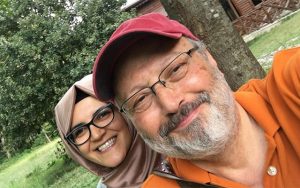
Jamal Khashoggi went into a self-imposed exile in September 2017, leaving Saudi Arabia for the United States. In August 2018, Khashoggi's fiancé Hatice Cengiz told him that to be married in Turkey, where she is from, he needed to obtain a certificate of marriage eligibility from the Saudi authorities.
August-September, 2018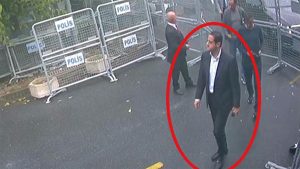
On October 1 and the early hours of October 2, 2018, 15 Saudi officials arrived in Istanbul. The following is a list of the 15 Saudi officials, along with their government positions.
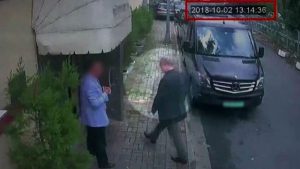
The Saudi Consul General ordered non-Saudi staff at the Consulate to either not report to work on October 2 or to leave the Consulate at noon. At 1:15 pm, Khashoggi entered the Consulate by himself, after leaving his phone with Ms. Cengiz, who remained outside. Turkish Intelligence assessed that he may have been dead within ten minutes after entering the Consulate.
October 2, 2018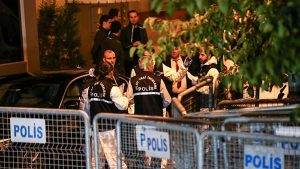
According to Turkey's Chief Public Prosecutor, the Turkish authorities opened an investigation into the disappearance of Khashoggi on the evening of October 2, after Ms. Cengiz called the local police about Khashoggi's disappearance. On the evening of October 6, Turkish officials communicated to the press that, "The initial assessment of the Turkish police is that Khashoggi has been killed at the Consulate of Saudi Arabia in Istanbul. We believe that the murder was premeditated, and the body was subsequently moved out of the Consulate."
October 6, 2018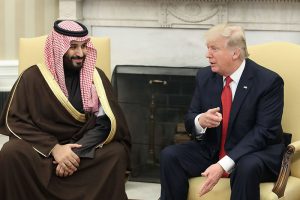
On October 7, the Saudi Press Agency published a statement from an unnamed Saudi official dismissing reports that Khashoggi had been killed in the Consulate. On October 15, United States President Donald Trump tweeted that he had spoken to the Crown Prince who had denied knowledge of "whatever happened to Khashoggi."
Later in the day, commenting on his conversation with the Crown Prince, President Trump said, "I don't want to get into his mind — but it sounded to me like maybe these could have been rogue killers. Who knows? We're going to try getting to the bottom of it very soon. But this was a flat denial."
October 7, 2018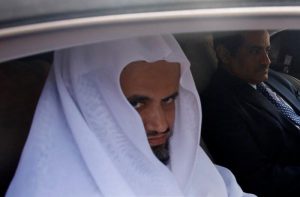
On October 19, in a statement on Saudi state television, the country's Chief Prosecutor admitted that Khashoggi had been killed in the Consulate. He said that a fistfight had broken out between Khashoggi and Saudi officials in the Consulate, which led to Khashoggi's death.
On October 21, Saudi authorities announced that they had detained 18 individuals as suspects in the murder of Jamal Khashoggi. The suspects included the 15 individuals identified by Turkey, as well as three Consular security attachés.
October 19-21, 2018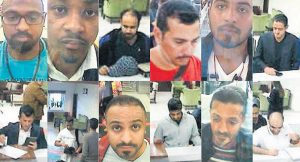
On October 25, Saudi Arabia's Office of the Attorney General declared that it had determined that the killing of Khashoggi was premeditated.
On November 5, the Third Criminal Court in Istanbul issued arrest warrants for the 15 Saudi officials and three members of the Consular staff. The same day, the Chief Public Prosecutor issued extradition requests for the 18.
October 25 - November 5, 2018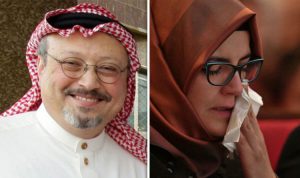
On November 15, Saudi Deputy Public Prosecutor Shalaan Alshalaan announced that the Saudi authorities had detained 21 individuals in relation to Khashoggi's killing and indicted 11.
On May 21, 2020, Khashoggi's former fiancé Ms. Cengiz tweeted, "Nobody has the right to pardon the killers. We will not pardon the killers nor those who ordered the killing."
November 15, 2018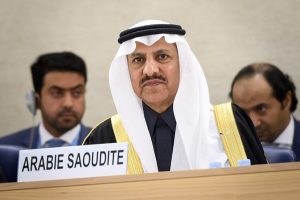
On March 14, 2019, , the Head of the Saudi Human Rights Commission, delivered remarks to the U.N. Human Rights Council in Geneva in which he stated that Saudi Arabia has taken the measures required "for us to resolve this heinous crime."
On April 10, 2019, Salah Khashoggi, Mr. Khashoggi's son, rejected the claim that a settlement has been reached.
March 14, 2019
On March 25, 2020, Turkish officials announced the indictment of 20 Saudi nationals on charges of murder and incitement to murder in the killing of Jamal Khashoggi. Special Rapporteur Callamard attended the Turkish trial.
On July 3, she expressed hope for the precedent the Turkish trial might set: "If the process works, what this trial will strengthen is the possibility of universal jurisdiction."
The next trial hearing is scheduled to take place on November 24, 2020 in Istanbul.
March 25, 2020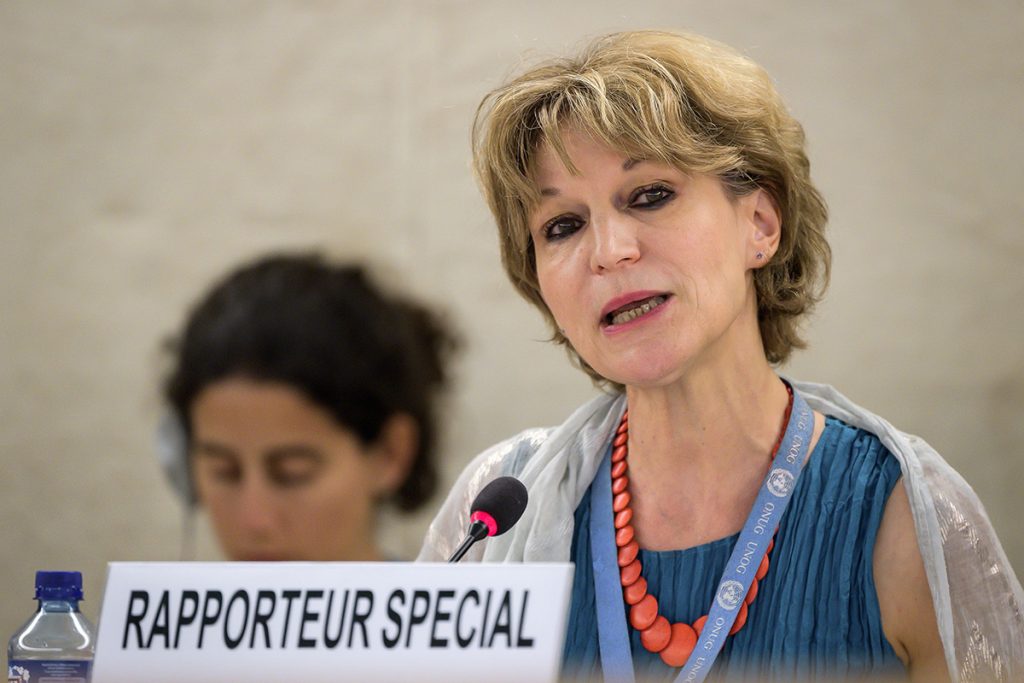
The bulk of the Special Rapporteur's Report on Jamal Khashoggi's murder, published on June 19, 2019, concerns documenting the past, providing details surrounding the murder and its aftermath. In contrast, the Report's recommendations section focuses not on the past, but instead on the present and the future.
In her recommendations, the Special Rapporteur urges a variety of international actors, including countries, international organizations, corporations, and civil society, to mobilize to ensure justice and accountability for the murder of Khashoggi, and to set up mechanisms to deter such extrajudicial and grievous human rights violations in the future.
Outrage is the word that describes the international reaction to Jamal Khashoggi's murder. Nations, international organizations, corporations, and civil society groups condemned the murder and demanded justice for Jamal. Reactions included press releases and reports, visa bans and sanctions, conference boycotts and cancelled business deals, investigations and resolutions, arms embargos and lawsuits.
Part of the outrage stemmed from the brazenness and savagery of the murder and from the astounding incompetence of the Saudis as they tried to cover up the act. The aggrieved denials of Saudi officials fell apart hour by the hour as the Turkish government time-released pieces of evidence for maximal damage to Saudi Arabia's reputation. Indeed, for several weeks, it was not clear whether the mastermind of the murder Crown Prince Mohammed bin Salman would weather the storm and maintain his hold on power in Saudi Arabia.
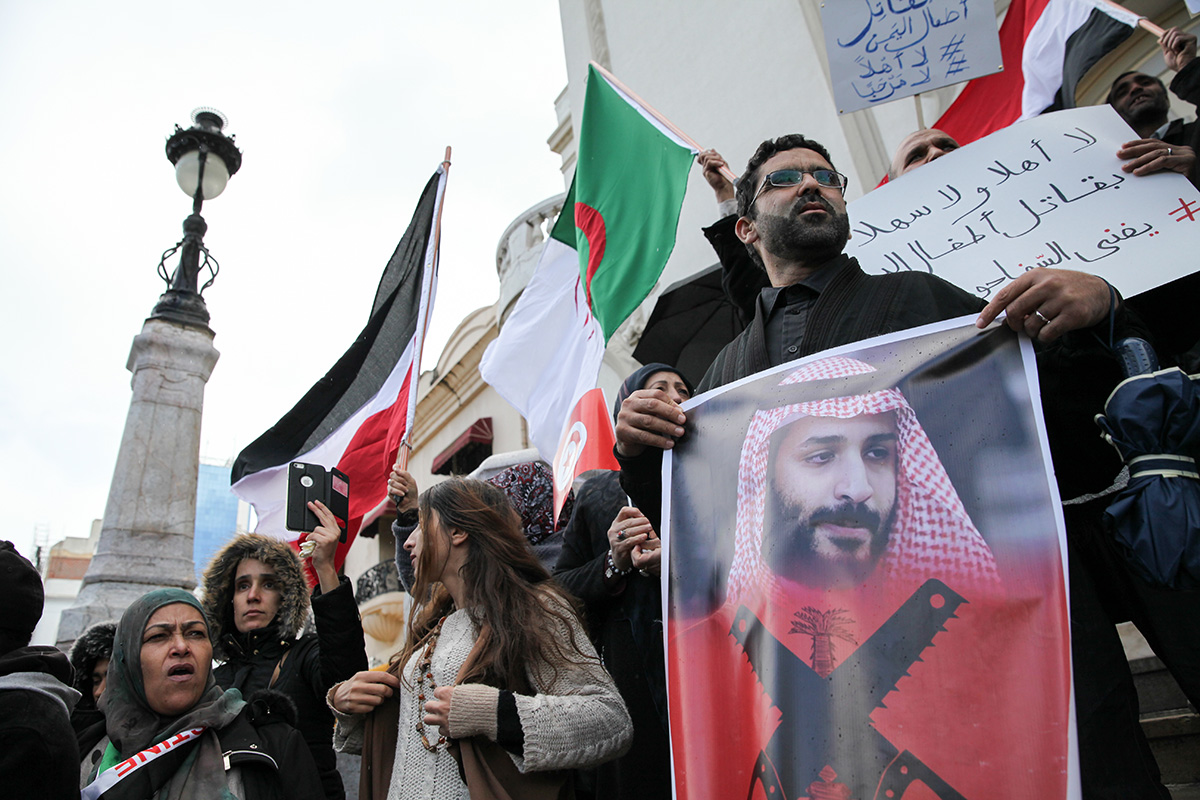
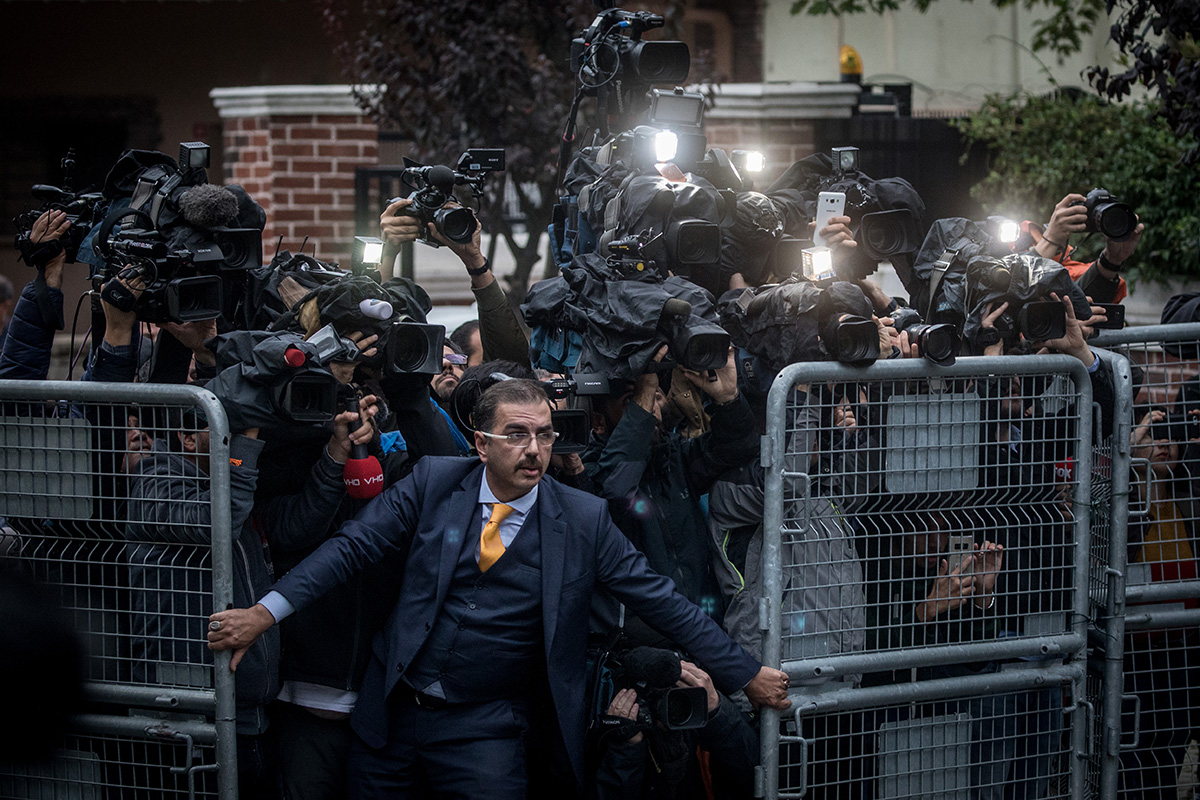
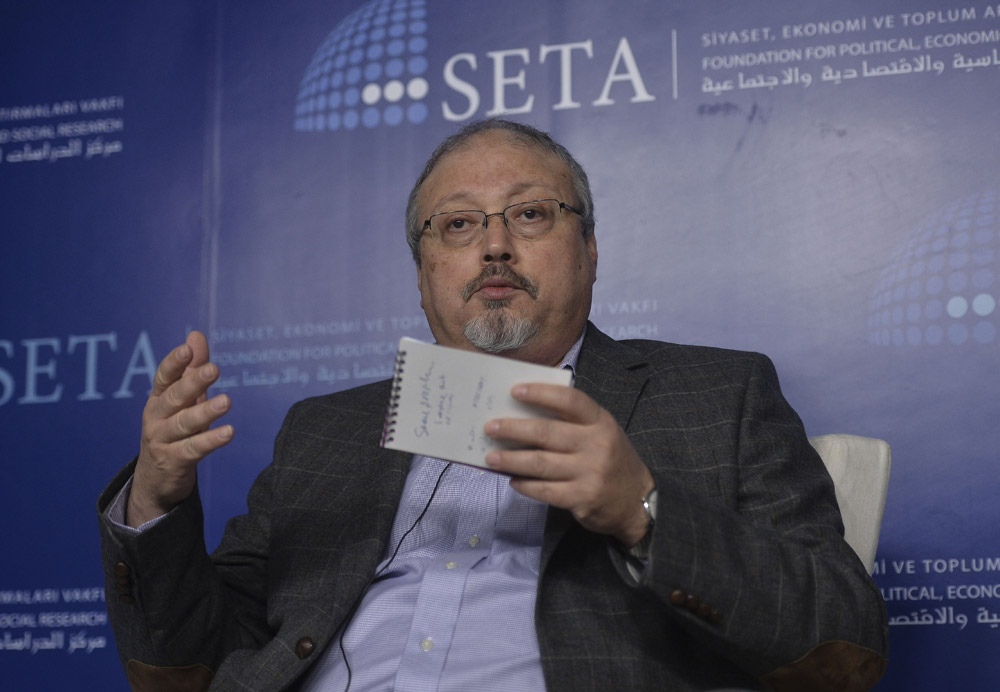
We’re fighting for a ceasefire and accountability for Israeli and U.S. officials responsible for war crimes in Gaza.
DAWN is a nonprofit organization that promotes democracy, the rule of law, and human rights for all of the peoples of the Middle East and North Africa (MENA).
© DAWN. Website Design by KRS Creative.